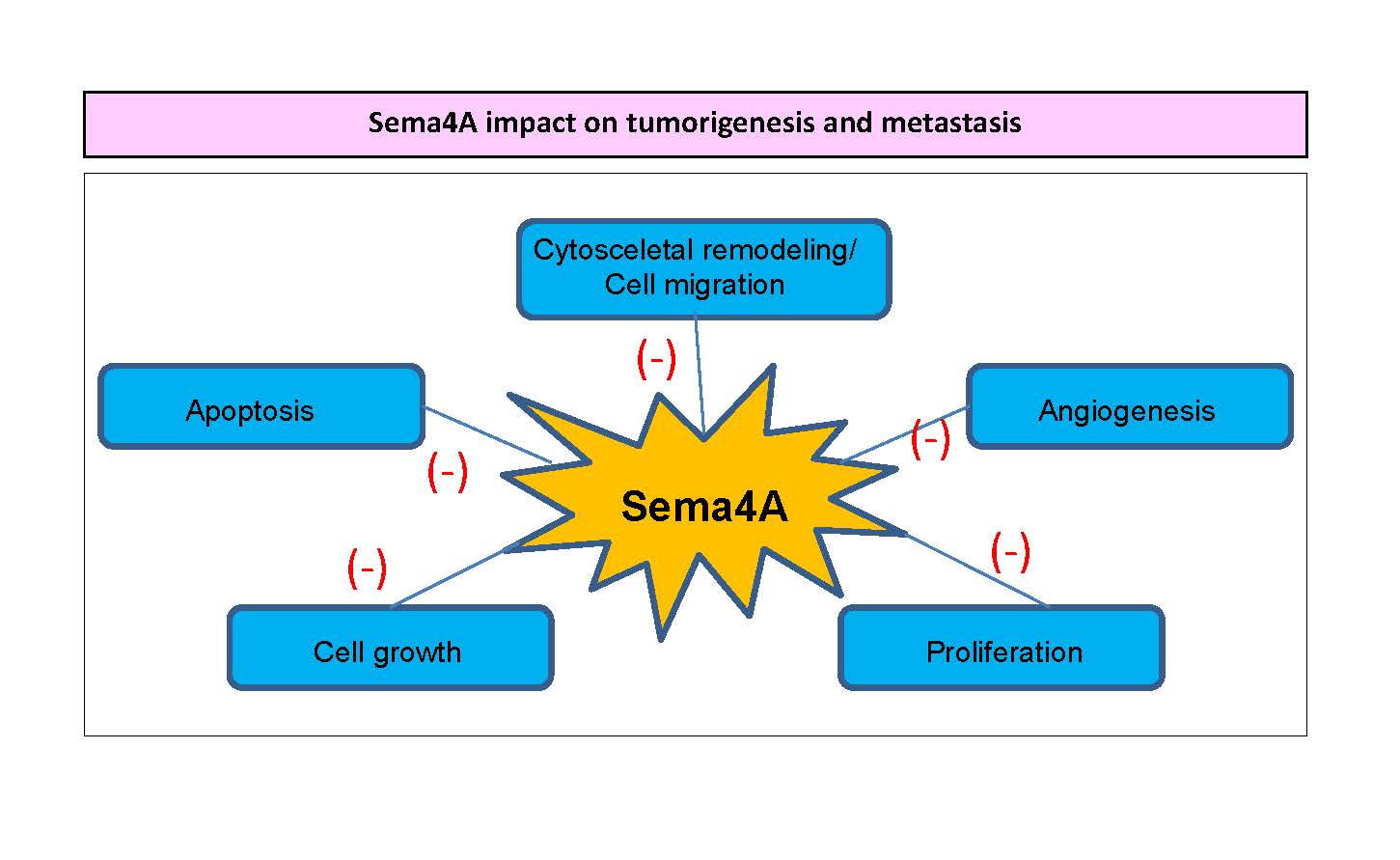Neuroimmune semaphorin 4A (Sema4A), a member of semaphorin family of transmembrane and secreted proteins, is an important regulator of neuronal and immune functions. In the nervous system, Sema4A primarily regulates the functional activity of neurons serving as an axon guidance molecule. In the immune system, Sema4A regulates immune cell activation and function granting a fine tuning of immune response. Recent studies have shown a dysregulation of Sema4A expression in several types of cancer such as hepatocellular carcinoma, colorectal and breast cancers. Cancers have been associated with abnormal angiogenesis. The function of Sema4A in angiogenesis and cancer is not defined. Recent studies have demonstrated Sema4A expression and function in endothelial cells. However, the results of these studies are controversial as they report either pro – or anti-angiogenic Sema4A effects depending on the experimental settings. In this mini-review, we discuss these findings as well as our data on Sema4A regulation of inflammation and angiogenesis, which both are important pathologic processes underlining tumorigenesis and tumor metastasis. Understanding the role of Sema4A in those processes may guide the development of improved therapeutic treatments for cancer.

